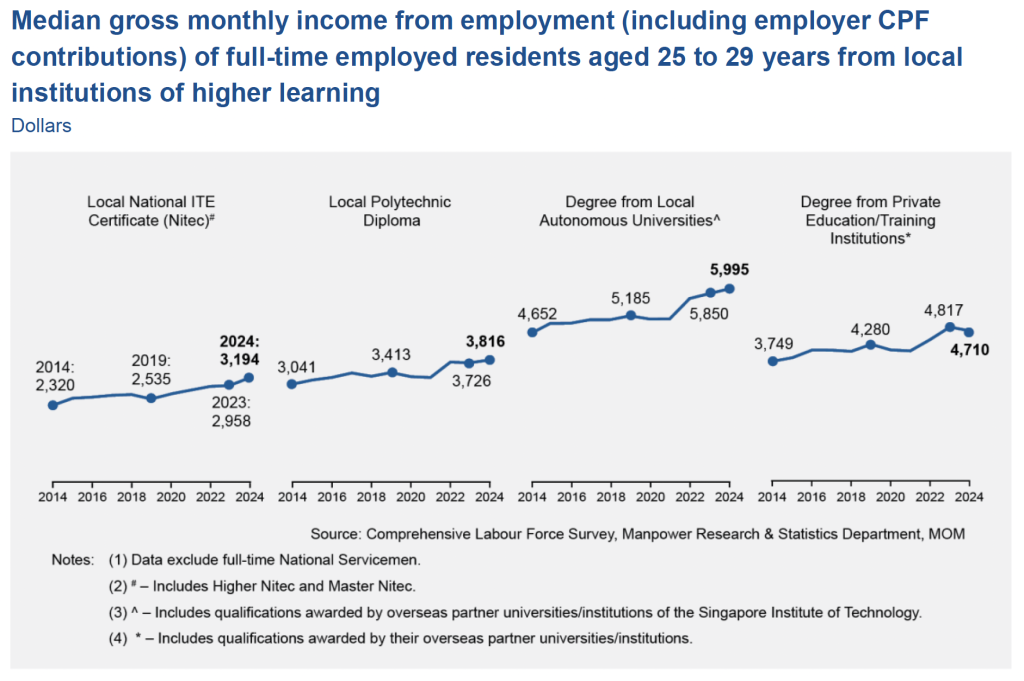Disclaimer: Unless otherwise stated, opinions expressed below belong solely to the author. Data sourced from the Ministry of Manpower.
In my last coverage of the local job market I observed that education still pays in Singapore, as local degree holders are the best paid people in the labour force.
As it turns out, this is visibly true also for recent graduates, and those holding the degrees of one of the nation’s six autonomous universities:
- Nanyang Technological University (NTU)
- National University of Singapore (NUS)
- Singapore Institute of Technology (SIT)
- Singapore Management University (SMU)
- Singapore University of Social Sciences (SUSS)
- Singapore University of Technology and Design (SUTD)
According to the latest Labour Force in Singapore 2024 report by MOM, the median salary for their employed alumni between the ages of 25 and 29, has reached, as near as makes no difference, S$6,000 (S$5,995 to be exact) last year, inclusive of employer CPF.
In other words, half of all of them make at least as much—or more. And this is averaged across all the different courses the schools offer (bearing in mind that some pay less and some more).

The gulf between university degrees and other qualifications remains very high and has outpaced both private institutions and local polytechnics in terms of growth over the past decade (rising by almost 29%, compared to 25.6 and 26.6% respectively).
Technical education has seen the highest pace of growth, at 37.6%, likely driven by both rebounding demand for vocational skills in the workplace as well as relatively low starting point back in 2014. In absolute terms, however, it’s still nearly 50% behind, only crossing S$3,000 last year.
More money but also more opportunities
Unsurprisingly, employment levels are also the highest among the best educated, with over 91% of university grads under the age of 30 working (with most of the rest likely still studying something else).
The biggest employment gap is found in the middle, among the polytechnic diploma holders, almost 20% of whom are not employed—although it has to be said that 13.2% of them were pursuing further education/training (up from 7.5% in 2014).
Which might mean those who succeed may find themselves in the higher educational tier, albeit reaching it in a slightly roundabout way.
It is clear, however, that it pays to study, as the differences add up to tens of thousands of dollars even in early years and compound over time, leading to significant wealth gaps further in life.
While some may still be enamoured by stories of American billionaire dropouts, the statistical facts are that getting that degree is still definitely worth the effort for most people in Singapore.
Featured image: Google Street View